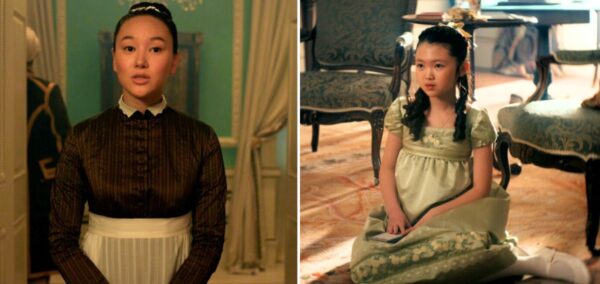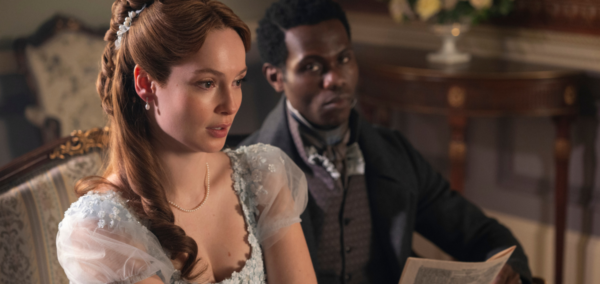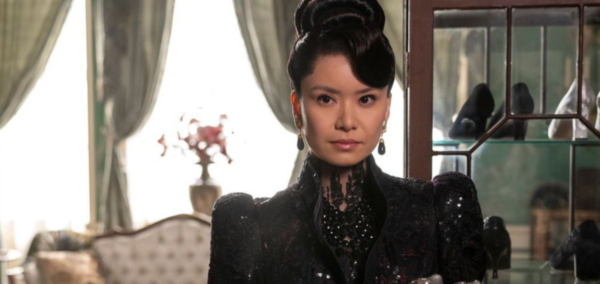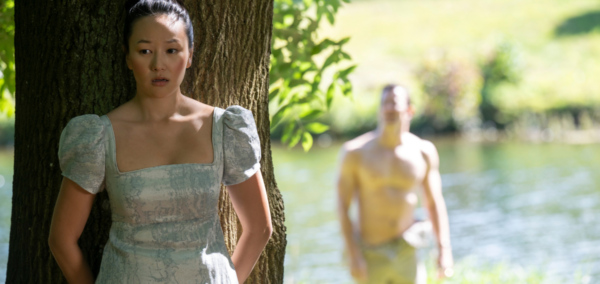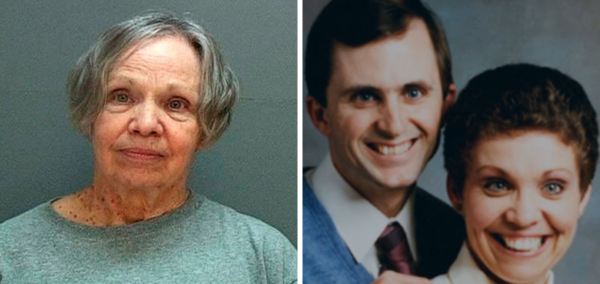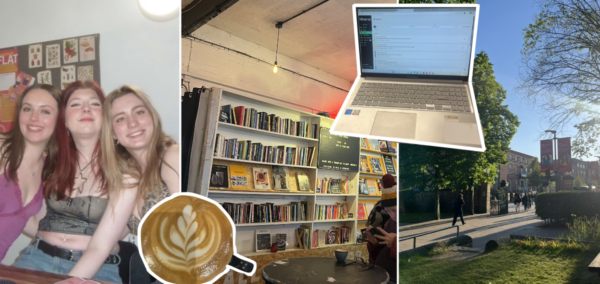
Gay relationships ‘hurt god’, upcoming speaker at Edinburgh University has claimed
He has also compared abortion to eugenics and euthanasia
A researcher who claimed that same-sex relationships “hurt god” will deliver a talk at Edinburgh University next week.
Dr Calum MacKellar from the Scottish Council on Human Bioethics is being hosted on campus by the university’s student pro-life society.
MacKellar specialises in the moral implications of biological decision making. He has previously compared abortion to euthanasia, the controversial illegal process of ending a person’s life to “relieve suffering”.
In 2020, he claimed that pro-euthanasia and pro-choice campaigners are similar because they share the belief that some lives are “of inferior quality or even meaningless”.
“The only way to resist the dangerous and outspoken proposal that the worth of a life is merely based on its potential for enjoyment (which is increasingly influencing society) is to continue to believe in genuine compassion, solidarity and the absolute equality of all”, he said.
When approached for comment by the Edinburgh Tab, Dr. MacKellar drew comparisons between abortion and eugenics, the highly controversial practice of engineering the human race to eliminate so-called “undesirable” characteristics.
He believes “some abortions (not all) are related to eugenics when they are undertaken to make sure certain kinds of persons are not born”.
Separately, in a 2009 dispute over whether to allow an openly gay minister to join a Scottish church, Dr MacKellar voiced opposition. “This is not a question of homophobia, it’s a question of relationships and what would hurt God”, he told The Scotsman newspaper.
The academic says that “whether homosexual relationships hurt God or not is a matter of Christian beliefs”, adding that most Christians would oppose homophobia directed towards individuals.
The Edinburgh University Students’ Association (EUSA) says it does not support “the harmful statements made by Dr Calum MacKellar”.
Most Read
“Student groups, and events run by student groups, do not necessarily represent the views of the Students’ Association, but we are required to follow freedom of speech laws, and our structures are as such to allow activity which reflects the range of experiences, perspectives, and beliefs within the student body”, a spokesperson said.
The university’s Life Society says the speaker’s comment regarding homosexual relationships “has no bearing on the topic we have invited him to speak about on Monday”.
“As a respected academic within the field of bioethics, Dr. MacKellar is well qualified to present on the topic of ethics and abortion, and to engage in robust academic discussion with both those who agree and those who disagree with the content of his talk”, the group said.

via Instagam @edinburghlifesociety
More recently, Dr. MacKellar expressed strong opposition to the Scottish government’s Gender Recognition Reform Act, which has since been blocked by the UK government, but would have made it easier for transgender Scots to change their legal gender.
MacKellar claimed there was a “high prevalence of mental disorders, such as autism spectrum disorder traits” among those experiencing gender dysphoria, and when approached, pointed to numerous academic articles as proof of this claim.
The National Autistic Society says there is “some evidence” to suggest a link between autism and gender dysphoria, however, the reason for this is unclear and more research is needed on the issue.
The talk at Edinburgh University follows recent events that have caused controversy on campus. In October, the Life Society’s talk on so-called coerced abortion was interrupted by student activists. In December, the screening of a “transphobic” film was cancelled after significant student opposition prevented guests from attending the event.
In response to next week’s event, the University of Edinburgh says it “is clear in its commitment to upholding freedom of expression and academic freedom, and facilitating an environment where students and staff can discuss challenging topics”.
Edinburgh’s pro-life society is still formally affiliated with the university’s Students’ Union, EUSA, despite members of EUSA voting last year for it to become an explicitly pro-choice organisation. 98 per cent of those who voted supported the motion.
EUSA Vice President Community, Isi Williams, explained at the time: “This motion won’t stop certain events or groups forming (as long they operate within our safe space policy and have passed the Student Association vetting process) as we have a responsibility to follow freedom of speech laws, but it does allow the Association to have more scope to advocate for all students’ right to safe and accessible healthcare”.
The Life Society has told the Edinburgh Tab it is “disappointed by EUSA’s decision, but will continue to provide a space on campus to build pro-life community and to discuss questions concerning the dignity and treatment of human life”.
The event with Dr Calum MacKellar is due to take place on Monday 13th March at 7:30pm in 50 George Square. He will speak in a personal capacity, not on behalf of the Scottish Council on Human Bioethics.
A spokesperson for the Edinburgh University Life Society said: “We have invited Dr Calum MacKellar to speak about the significant discrimination within the abortion industry against disabled people, and the relation such discrimination bears to eugenics. In the UK, abortion is ordinarily only allowed up to 24 weeks, but in cases of disability up until birth. The definition of disability in this context can range from Downs Syndrome to a cleft lip.
“As a respected academic within the field of bioethics, Dr. MacKellar is well qualified to present on the topic of ethics and abortion, and to engage in robust academic discussion with both those who agree and those who disagree with the content of his talk.
“Dr. MacKellar’s statement regarding homosexual relationships, made in the context of a debate on this issue within the Church of Scotland back in 2009, has no bearing on the topic we have invited him to speak about on Monday.
“The pro-choice motion recently passed by EUSA does not affect the Life Society’s affiliated status, and we continue to receive support and services from the university. We are disappointed by EUSA’s decision, but will continue to provide a space on campus to build pro-life community and to discuss questions concerning the dignity and treatment of human life.”
A spokesperson for the University of Edinburgh said: “The University is clear in its commitment to upholding freedom of expression and academic freedom, and facilitating an environment where students and staff can discuss challenging topics.
“Given the size of our community it is inevitable that the ideas of different members will conflict. We encourage respectful debate and discussion whenever there are differences of view or opinion”.
A spokesperson for the Edinburgh University Students’ Association said: “The Students’ Association does not support the harmful statements made by Dr Calum MacKellar. The Students’ Association is committed to creating a safe and inclusive space for students, in line with our Safe Space Policy.
“Any student events run in our venues and University spaces are asked to supply information regarding any external speakers and we are legally obliged to screen these to ensure we’re compliant with relevant legislation, including ‘Prevent’. In this case, as the booking was made in a University space, the risk assessment would have been undertaken by the University. The University’s “Policy on Speakers and Events” outlines the steps the University will take to risk assess any events taking place in its buildings in order to meet its legal obligations.
“Under freedom of speech laws, the University has a legal responsibility to allow events like these to occur. Student groups, and events run by student groups, do not necessarily represent the views of the Students’ Association, but we are required to follow freedom of speech laws, and our structures are as such to allow activity which reflects the range of experiences, perspectives, and beliefs within the student body. We do have a zero-tolerance policy on hate speech or events which create unsafe environments, as outlined in our Safe Space Policy.
“The Students’ Association is pro-choice organisation, as affirmed by a vote at the October 2022 meeting of Student Council. This policy sets out the Association’s commitment to advocating for all students’ right to safe and accessible healthcare. The Association explicitly supports the belief that all those seeking an abortion in the UK are entitled to free, safe and legal abortion, regardless of geographical location or ability to pay. We also support campaigns that oppose any restrictions on current rights and access to abortion, or campaigns to make access to, and experience of, abortion fairer for those who decide not to continue with their pregnancy. We will also ensure that all students who are pregnant and wish to access free, impartial and non-directional advice can do so through the Advice Place. It does not, however, stop the affiliation of student groups such as the Pro-Life Society. as we have a responsibility to follow freedom of speech laws. All groups registered with us are peer reviewed at the application process by a committee of students and ensure they can operate within the Students’ Association policies”.
Featured image via YouTube.
Related stories recommended by this writer:
• Only least privileged students accepted to study law at Edinburgh University
• Edinburgh University saves over £64,000 per day during strike action
• What we learn from listening to Edinburgh University’s state school students








